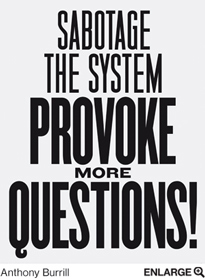Tiago Peixoto: “HEC Paris has just hosted the 3rd Global Conference on Transparency Research, and they have made the list of accepted papers available. …
As one goes through the papers, it is clear that unlike most of the open government space, when it comes to research, transparency is treated less as a matter of technology and formats and more as a matter of social and political institutions. And that is a good thing.”
This year’s papers are listed below:
- Hannes Meissner: “Functioning , Effects and Perspectives of Transparency Initiatives – The Example of Azerbaijan“
- Luis Emilio Cuenca Botey & Laure Célérier: ‘Participatory Budgeting: a Bourdieusian Interpretation‘
- Tsvetelina Yordanova: ‘Transparency in Foreign Policy and International Relations‘
- Maarten Hillebrandt: ‘A Map without a Compass? Evaluating the Transparency-Democracy Fit in the Council of the EU‘
- Silvana Fumega: ‘Opening the Cities: Open Government Data in Local Governments of Argentina, Brazil and Uruguay – Buenos Aires Preliminary Report‘
- Leopold Ringel: ‘The Uneasy Relationship of Organizations and Expectations of Transparency – A Theoretical Framework‘
- Carolyn Ball: ‘Indicators of Transparency and Trustworthiness in Nonprofits – Should we trust Nonprofits?‘
- Omar E. Hawthorne: ‘Transparency International’s Corruption Perceptions Index: “best flawed”measure on Corruption?‘
- James H. Irving & Kimberley J. Smith: ‘Off-balance Sheet Arrangements, Transparency and the 2007-2009 Financial Crisis‘
- Robert Podolnjak & Đorđe Gardašević: ‘Great Expectations: The New Croatian Freedom of Information Act‘
- Stephan Grimmelikhuijsen & Jyldyz Kasymova: ‘A tale of empowering versus informing: a qualitative comparison of environmental transparency in New Jersey and the Netherlands‘
- Albert van Zyl: “Greasing the Wheels of the Accountability System: How Civil Society Organizations close the Gap between Transparency and Accountability“
- Claudia Cappelli, Renata Mendes de Araujo & Julio Cesar Sampaio do Prado Leite: “Managing Transparency guided by a Maturity Model“
- Jenny de Fine Licht:”The Effect of Transparency in Decision Making for Public Perceptions of Legitimacy in different Policy-areas“
- Ezekiel Mbitha Mwenzwa: “Transparency and Accountability in Kenya: A Review of the Institutional Framework for Public Service Delivery“
- Michelle Gallant: “Lawyers and Money Laundering Regulation: Testing the Limits of the Secrecy in Canada“
- Mark Aspinwall: “Transparency and rule of Law: Conceptualizing the relationship“
- Albert J. Meijer: “The History of Transparency: Analysing the Long-term Socio-Political Construction of Transparency in the Netherlands“
- Oana B. Albu & Mikkel Flyverbom: “Categories and Dimensions of Organizational Transparency“
- Frankie Schram: “The relationship between the protection of privacy, the processing of personal data and the FOI-legislation in Belgium“
- Laurent Bibard: “On Transparency and the Common Good: A Temperate Approach“
- Mark Fenster: “Transparency as a Theory of Communication“
- Lars Thøger Christensen & George Cheney: “Peering into Transparency – Ideals Proxies and Organizational Practices“
- Abiola O. Makinwa: “Transparency and Corruption: Bypassing the Compromised State“
- Sandrine Baume: “Does Transparency Engender the Confidence of the Governed? A Contribution to Political Thought“
- Milena Mihaylova: “Implementation of the Concept of Transparency by EU Institutions: Access to documents“
- Prashant Sharma: “Turbid Transparency: The Making of the Right to Information Act in India“
- Rodrigo Mora Ortega: “Strategic Litigation on Access to Public Employees’ e-mails in Chile: putting things right?“
- Atina Krajewska: “In Search of the Holy Grail of Transparent and Coherent Global Health Law“
- Megan Donaldson: “Transparency and the Construction of a Global Public: Formal Transparency Policies in the Multilateral Development Banks“
- Benjamin Greer & Jeffery G. Purvis: “Human Trafficking Corporate Supply Chain Transparency: How best to legislatively approach disclosure“
- Imelda Maher: “Transparency and Networks: Accounting for Governance in the Competition Sphere“
- Benjamin Worthy: “David Cameron’s Transparency Revolution?
- Mikkel Flyverbom & Christina Garsten: “The sway of (big) data – calculations and advocacy in the name of transparency“
- Alon Peled: “Effective Openness – The Role of Open Data 2.0 in a wider Transparency Program“
- Gregory Michener and Benjamin Worthy, “From Fishing to Experimentation: Transparency as Information Gathering – A Typology and Framework for Analysis“
- Harmen H. P. Groenhart: “From Punishment to reward: Shifting perspectives on public media accountability“

